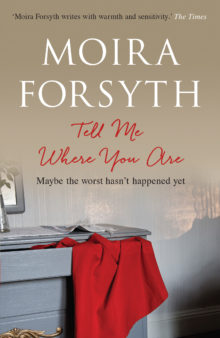It’s easy to find advice about writing – the internet is full of hints and tips. I have Elmore Leonard’s 10 Rules for Good Writing on my study wall, but I don’t bother with much else these days. However, it might be worth reconsidering some of the traditional advice that’s handed out to new writers.

When I’m asked to write about writing, I don’t get far before I think of the Limerick Man. I never met him myself, but I have on good authority the role he played in the famous Dingwall Writers’ Group, which I joined soon after he moved on to greater things. I’ll come back to him later.
Traditional Advice 1: Join a Writers’ Group
I’d been in writers’ groups before, but none with the liveliness and astonishing talent of the one in Dingwall. Surrounded by good writers, you quickly raise your game. The critical feedback was helpful, the other writers were producing stuff that sparked new ideas, and the craic in the pub afterwards was every bit as good as the meeting itself. Salute to Brian McCabe who chaired it as the third writer in residence in Ross & Cromarty.
So if you’re keen to be a writer, join a good group. If you don’t know of any, start your own.
However, if you can’t be in a group with writers whose work and feedback you respect, the other kind is not worth joining. I’m thinking of the sort where people read terrible work and say to each other, ‘That’s lovely! Isn’t that lovely?’. These groups are good source material though, especially if you like writing humorous stories. Indeed, everything is source material, from death and disaster to the guy on the train on his mobile moaning about his boss.
Traditional Advice 2: Write every day
If you’re serious about writing, the first thing is not to write every day but to get a job, or stay in the job you’ve got. It was head-in-hands time at the Sandstone Press office when we read that one of our debut authors (whose novel wasn’t actually out yet) had given up his job ‘to write full-time’. 1. He won’t make enough money to live on. 2. He won’t have nearly as much to write about.
If all you do is write, there is a danger that eventually your characters will be writers, and nothing is more tedious. There are honourable exceptions; the best are blackly funny. Of course, write whenever you can, and keep that writing muscle in good shape, but any writing is helpful. It’s not wasted time to write a clear logical report for your boss, a letter to a friend, a funding bid for a community group. Every bit of writing you do should meet your highest standards and be carefully edited – not just the imaginative kind.
Traditional Advice 3: Write what you know
Think of what we’d lose if any real attention was paid to this. No speculative fiction, no fantasy, no horror and far, far fewer crime novels. (Unless of course other people’s lives are much more interesting than my own, which is a distinct possibility.) So don’t write what you know, write whatever you like. The challenge is to make other people believe in it. To do this, you need some fundamental understanding of the world we live in and its people, but imagination can take you much farther.
Traditional Advice 4: Don’t Give Up – you’ll get published if you keep trying
Of course I’ve been writing for much longer than I’ve been published. Looking back, I wonder why on earth I persisted, with so little encouragement. Perhaps I just liked doing it. Well, I did. Nothing makes me happier. So don’t moan about the difficulties of being a writer, the blank page, the angst of creativity, the many rejections. You are so lucky to be able to do it! But there are absolutely no guarantees you’ll get published. You can help yourself of course, but that’s a whole other blog post.
Finally, I will add one piece of advice of my own. It’s something I know many writers ignore, or perhaps they don’t think it matters. Yet for me, it’s crucial.
Don’t write about writing. Don’t write about what you are writing while you’re in the middle of it.
One, you will sound pretentious. My characters have a life of their own, and they’re simply taking over…
Two, you will get bored with your own work. You will talk it out so that it loses its freshness and mystery.
Three, the people you tell about it will give you Good Ideas for what to do with your own material. Fatal.
Of course this raises the question of what on earth your role is in the writers’ group. This is why I started writing short stories and poems: I didn’t care so much about them, and my novel stayed inviolate in my head. The feedback though, made me a better writer. You must find your own solution.
The Limerick Man? Ah. He took his work very seriously. One day, describing it, he said yes, he wrote the limericks, but sometimes, he felt… he felt the limericks were writing him.
Beware taking it all too seriously!
Visit Moira's website, Twitter, Facebook page.
Tell Me Where You Are is published by Sandstone Press on 15 May 2019 at £7.99 in paperback.
Comments